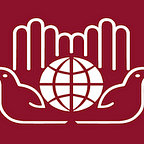United Nations Security Council Responsibility: An Overview
During the month-long, International Diploma in Humanitarian Assistance (IDHA) program from June 2, 2019, through June 29, 2019, the program was fortunate enough to host Kamal Amakrane — Senior Advisor at Columbia University’s Global Policy Initiative and former Political Director to the Presidents of the UN General Assembly — for a lecture on the United Nations Security Council (UNSC).
The UNSC is responsible for maintaining international peace and security. To understand the decisions of the UNSC, Amakrane stressed the importance of comprehending the politics of the assembly. The lecture began with an analysis of the organizational structure and electoral system of the UNSC. In particular, Amakrane emphasized the role of the permanent five members — the United Kingdom, the United States, France, China, and Russia. The agenda setting and decisions of the UNSC reflect the importance of these countries. Often, the colonial history of these countries trickles down into the very functions of the UNSC. The other ten nonpermanent members serve for a two-year term and are elected to represent certain regional groups — five for African and Asian countries, one for Eastern European countries, two for Latin American and Caribbean countries, and two for Western European and other countries. For a decision to pass in the Security Council, nine votes and no veto are necessary.
Amakrane expressed his concern over the functions of the UNSC because of an inherent power struggle within the assembly while expressing that other branches of the UN are more effective. He recognizes that the transactional nature of contemporary politics is volatile to the environment of the UNSC. For example, the UNSC sets the agenda, where decisions are then made, in terms of political interests. There is a lack of morality within the decision-making process of the UNSC because the Council makes agreements with respect to resources (trade) and protection (military). A global consensus is challenging to come by in international relations. Generally, coherence only works when there is a significant shock. In his tenure at the UN, Amakrane recognized this trend. In addition, he learned that “not all conflicts are meant to be solved, but many are only meant to be managed.” This paradigm is the reason behind the special political missions of the UNSC.
Ironically, there are contradictions within the very nature of the UNSC. The Council is often above international law because it is the source of international law. This nuanced position is frequently the source of moral conflict within the UNSC. This conflict often manifests itself in distinguishing between matters of international peace or internal affairs. The Council avoids managing internal affairs of a state because of its tangential relationship to the mission of the UNSC.
The lecture invoked immense curiosity amongst the IDHA students and provoked thoughtful and challenging questions for Amakrane. The lecture concluded with a short Q & A session in which Amakrane responded to students specific questions about topics such as the conflict in Sudan, the complicated position of Jordan in the international community, and a discussion on the fluidity of core and periphery nations. Following the lecture, students’ reflected on the knowledge Amakrane shared with them, many recognizing the nuanced position he takes on the politics of the UNSC as a former insider who now watches from the outside.
Written by Charles Beauregard, Refuge Press Intern, Summer 2019
About the IIHA
The Institute of International Humanitarian Affairs (IIHA) prepares current and future aid workers with the knowledge and skills needed to respond effectively in times of humanitarian crisis and disaster. Our courses are borne of an interdisciplinary curriculum that combines academic theory with the practical experience of seasoned humanitarian professionals. The IIHA also publishes on a wide range of humanitarian topics and regularly hosts a number of events in the New York area, including the annual Humanitarian Blockchain Summit and Design for Humanity Summit.
For media inquiries, please contact: Camille Giacovas, Communications & Research Officer, IIHA cgiacovas@fordham.edu
For IDHA Inquiries please contact: Laura Ortiz, IDHA Administrator iiha.course.adm@gmail.com
